Episodes

Tuesday Jul 02, 2019
"Friendship between Women: Jane and Elizabeth Bennet" by Dr. Tiffany Schubert
Tuesday Jul 02, 2019
Tuesday Jul 02, 2019
“‘My dear Jane,’ exclaimed Elizabeth, ‘you are too good. Your sweetness and disinterestedness are really angelic; I do not know what to say to you. I feel as if I had never done you justice, or loved you as you deserve.’”
“Miss Bennet eagerly disclaimed all extraordinary merit, and threw back the praise on her sister’s warm affection.”
One of the exemplary friendships we studied at this year’s Wyoming School of Catholic Thought was the friendship between Elizabeth Bennet and her sister Jane in Jane Austen’s Pride and Prejudice.
What characterized this friendship between women? Why is their relationship so appealing? And what can we learn from it to inform our own friendships.
Wyoming Catholic College Teaching Fellow Dr. Tiffany Schubert has been a Jane Austen fan and scholar for many years. Here is her presentation delivered this past June 10.

Tuesday Jun 18, 2019
Tuesday Jun 18, 2019
Jonathan was Crown Prince of Israel, the man next in line to be king. David was, however, the man destined to be king instead--and that by God's sovereign choice. King Saul knew that God had chosen David and Jonathan knew as well. Yet rather than trying to kill David, "Jonathan loved him as his own soul." The two were the dearest of friends.
This lecture by Dr. Jim Tonkowich about the friendship between Jonathan and David opened the 2019 Wyoming School of Catholic Thought on June 9. The school's theme was: "No Greater Gift: Friendship from The Iliad to Facebook."
This podcast is the first in a series of podcasts this summer featuring lectures from the Wyoming School.
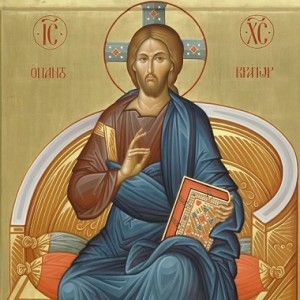
Tuesday May 28, 2019
Eastern Church, Western Church with Fr. David Anderson
Tuesday May 28, 2019
Tuesday May 28, 2019
Most Catholics know only the Roman or Latin Novus Ordo rite of the Eucharist. That’s not a surprise since it’s that rite that is celebrated almost exclusively in most of our churches. But the Catholic Church has not one, not two, but twenty-three different rites falling into six basic families: Latin, Alexandrian, Antiochian, Armenian, Chaldean and Constantinopolitan better known as Byzantine.
Our Wyoming Catholic College community is no stranger to the Byzantine rite. A nearby priest has celebrated that rite, the Divine Liturgy of St. John Chrysostom, regularly. Beginning this fall, however, we will all become even more familiar with the Byzantine liturgy as the college welcomes Fr. David Anderson as a second college chaplain. Fr. Anderson is our guest this week on The After Dinner Scholar.
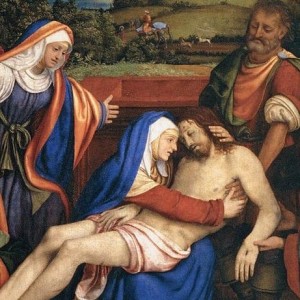
Tuesday May 07, 2019
Questions of Life and Death with Dr. Kent Lasnoski
Tuesday May 07, 2019
Tuesday May 07, 2019
In the old cowboy movie, "The Man Who Shot Liberty Valance," once Valance is on the ground with a bullet in him, someone calls for the doctor. The doctor turns the body face up with his boot, looks at the corpse, and says, "Dead." One hundred or more years ago, life and death were relatively simple, but they're not any more.
While there are good reasons to rejoice in modern medical technique and technology, questions of life and death have grow in number and complexity.
Dr. Kent Lasnoski ended his moral theology course with Wyoming Catholic College seniors by moving from the philosophical and the theological to the conundrums force on us by medical and biotechnical advancements. Dr. Lasnoski is our guest on this week's After Dinner Scholar.
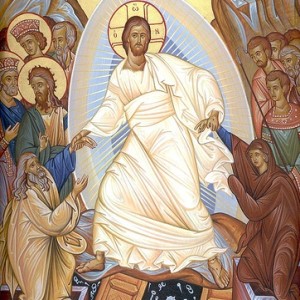
Tuesday Apr 23, 2019
St. Thomas Aquinas on the Resurrection of Jesus with Dr. Jeremy Holmes
Tuesday Apr 23, 2019
Tuesday Apr 23, 2019
The Catechism of the Catholic Church declares, “Easter is not simply one feast among others, but the ‘"Feast of feasts,’ the ‘Solemnity of solemnities,’ just as the Eucharist is the ‘Sacrament of sacraments’ (the Great Sacrament). St. Athanasius calls Easter ‘the Great Sunday’ and the Eastern Churches call Holy Week ‘the Great Week.’ The mystery of the Resurrection, in which Christ crushed death, permeates with its powerful energy our old time, until all is subjected to him.”
In his Compendium Theologiae, St. Thomas Aquinas reflected on the meaning of the resurrection. This Easter Week, Dr. Jeremy Holmes explains how Thomas understood the resurrection of Christ and its relationship to our resurrection.
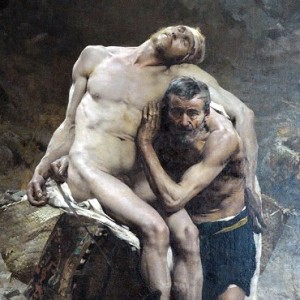
Tuesday Apr 09, 2019
"In an Urban Wilderness with Christ in the City" with Dr. Kent Lasnoski
Tuesday Apr 09, 2019
Tuesday Apr 09, 2019
March 23 to 30 was Outdoor Week here at Wyoming Catholic College. And while most of our students were out in what we typically think of as the wilderness, one group found themselves in another kind of wilderness: a wilderness of loneliness.
Christ in the City was founded in Denver to address long-term, chronic homelessness. Young missionaries commit one year to live in community, grow in the Faith, and minister to the needy, bridging the regrettable gap that often separates evangelism from service to the poor.
In addition, Christ in the City provides short-term opportunities during the summer and, for our Wyoming Catholic College students, during Outdoor Week.
Theologian Dr. Kent Lasnoski and his family were part of the team. Dr. Lasnoski is our guest this week on The After Dinner Scholar
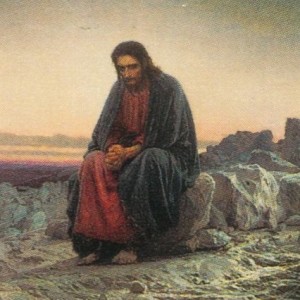
Tuesday Mar 05, 2019
Lent: A Time of Sacrifice, Growth, and Joy with Fr. Paul Ward
Tuesday Mar 05, 2019
Tuesday Mar 05, 2019
“Lent,” wrote New Testament scholar Dr. N. T. Wright, “is a time for discipline, for confession, for honesty, not because God is mean or fault-finding or finger-pointing but because he wants us to know the joy of being cleaned out, ready for all the good things he now has in store.”
And even if we already knew that, well… discipline and sacrifice come hard to most of us. As Pope St. John Paul II noted, “Our age, regrettably, is particularly susceptible to the temptation toward selfishness which always lurks within the human heart. …The spirit of the world affects our inner propensity to give ourselves unselfishly to others and drives us to satisfy our own particular interests.”
Lent is the needed antidote and our Wyoming Catholic College community takes Lent very seriously. Guiding us—students, faculty, and staff—through Lent is our college chaplain, Fr. Paul Ward. Fr. Ward is our guest this week on The After Dinner Scholar.
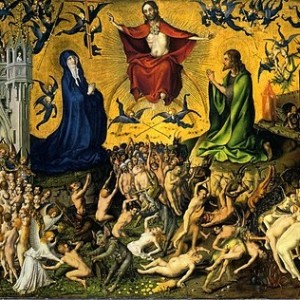
Tuesday Feb 19, 2019
Learning and the Dies Irae with Prof. Kyle Washut
Tuesday Feb 19, 2019
Tuesday Feb 19, 2019
The Dies Irae, a hymn from the 12th century, speaks about the second coming of Christ and the Judgment Day. In addition to that, the Latin text just happens correspond with the Latin Wyoming Catholic College sophomores are learning right now.
It is, in fact, a powerful and challenging combination of poetry, theology, spirituality, and Latin grammar.
Noticing all that, Prof. Kyle Washut and Prof. Eugene Hamilton integrated a bit of second year Latin with second year Trivium. Prof. Washut is our guest this week on The After Dinner Scholar
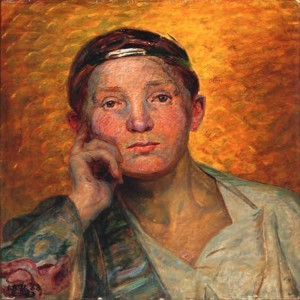
Tuesday Jan 01, 2019
Getting Wisdom in 2019 with Dr. Jeremy Holmes
Tuesday Jan 01, 2019
Tuesday Jan 01, 2019
“What does it mean to be wise?” a psychologist recently asked an 8-year-old and an 88-year-old from different parts of the world. “Their answers,” she reported, “were remarkably similar: to know a lot.”
If wisdom was simply a question of knowing a lot, we would need to conclude that Americans today are by far the wisest generation to live. After all, thanks to the internet, we know a lot about a lot of things. But is access to knowledge, to data really the definition of wisdom? Isn’t wisdom more a matter of how we live than about what we know?
Of the 73 books in our Bibles, we classify seven as “wisdom books.” Those are Job, Psalms, Proverbs, Ecclesiastes, Song of Solomon, Wisdom of Solomon, and Sirach. And for most people, aside from Psalms, the books seem rather elusive.
To help us understand wisdom and the wisdom books as we embark on a new calendar year, we’re joined by theologian Dr. Jeremy Holmes.
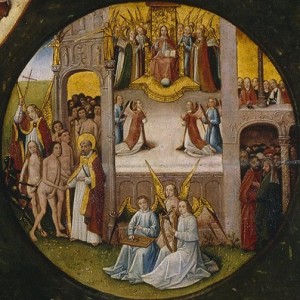
Tuesday Dec 04, 2018
Heaven, Hell, and Purgatory in Thomas Aquinas with Dr. Kent Lasnoski
Tuesday Dec 04, 2018
Tuesday Dec 04, 2018
Each Sunday at Mass we repeat the same words: “ I look forward to the resurrection of the dead and the life of the world to come.” We also remind ourselves that Jesus is coming again, most of us would rather not think too deeply about death and with it about Hell, Purgatory, and Heaven. But how often do we take the time to consider what exactly that means?
St. Thomas Aquinas wrote his Compendium Theologiea during the last two years of his life, completing it in 1273. Unlike his Summa Theologiae, theology for theologians, Thomas wrote the Compendium to help laypeople to love God more by coming to know Him better. That is, it’s theology for everyone seeking to know, love, and serve God through faith in Jesus Christ.
During the waning days of this fall semester, Wyoming Catholic College juniors under Dr. Kent Lasnoski’s tutelage have been considering what St. Thomas had to say about judgment, Hell, Purgatory, and Heaven in the Compendium.
Dr. Lasnoski is our guest this week on The After Dinner Scholar.

